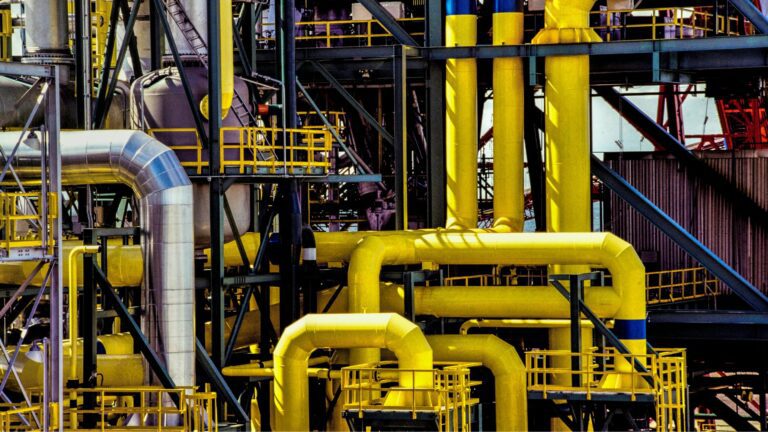Oil and Gas in Central Europe: Navigating a Year of Transformation

Turbulent Oil and Gas – one more year of uncertainty?
When the oil and gas sector caught first glimpses of the EU green deal cloud forming on the horizon, experts were predicting unstable times. Then COVID hit and the business went south due to the free fall of global travel. That was really hard we thought, anticipating easier times and after that hoping for gradual recovery. Nothing can be as bad as a global lockdown, right? Well actually there WAS something. Enter the Russian war against Ukraine and suddenly it was not about a fear of demand dropping, but rather a fear of supply stopping. We no longer worried about how much to fill up the car, but rather, if we will be able to fill up at all.
Fragile, landlocked and dependent
That’s Central Europe a year ago and boy, was it scary. Czech republic, Slovakia, Hungary, all heavily dependent on the Russian crude pipeline with name Druzhba which translates to Friendship in english. And this kind of friendship suddenly turned into a potential weapon. Especially Czech Republic does not have many options on how to supply the country with crude oil and products such as gasoline and diesel. The only two pipe options being (see the enclosed map) the Trans-alpine pipe to Germany, or the Croatian Adria pipe through Hungary and Slovakia. Being at the end of the pipe „sucks“ especially if the pipe is not wide and fast enough.
Sanctions, regulations and wild cards
European sanctions brought a great deal of uncertainty for the central and eastern European region. Will the Russians close the tabs? Will we find sources to supply our petrol stations? Will we have to reach for the strategic reserves of petrol that can give us only up to 90 days of volume? For the last forty years the entire sector did not have to face such challenges. Logistics had to find new routes. Sales needed to find new sources to buy from. Production will have to find a way to process crudes from different, often lower quality sources. Saved by the bell in the last minutes again – an EU exemption allows the flow of Russian products for one more year into the land locked region. Not saying that’s something great politically but the Russian products find their way to Europ anyway as I mention further.
A year of the biggest shift
2024 seems to be the year where all the big cards will be laid on the table. The Czechs will enlarge the pipe from Germany. Polish-Czecho-Slovak production plants will upgrade to process non-Russian crude. While the future of the Friendship pipe remains uncertain, what is next? So far the Russian crude is flowing to whole Europe in a covert way, as a product brought to Indian and other ports, where it is turned into Fuels and exported to europe via sea. Other crudes and finished products will come to Europe by sea from north, middle east or Caspian regions. New alliances and logistics routes form as we speak. The goods must flow because so far without crude and fuel we don’t get to drive a car, fly a plane, power huge transport ships that make the backbone of the world train. Hell, we don’t even get a tooth brush or anything made out of plastics for that matter. It all comes from crude.
The end game in sight?
It’s hard to predict the outcomes of this shift. Who will suffer most? The price of petrol at the gas stations is formed by so many factors, mostly taxation. So it is the politicians that form the biggest chunk of the price for consumers. The industry of oil and gas is on one hand asked to kindly let the electric car industry take over. How quickly that will happen is a question to be answered by the newly elected European parliament. Predictions show this time it might be way more reserved to green deal and its speed. On the other hand the industry is asked to pay more taxes and shift its whole logistic chain. And to come up with innovations that will bring cleaner solutions. Such as waste to energy, synthetic Fuels. The sector is asked to do a lot, a lot of difficult if not impossible stuff. This year we will most probably find out what will be the oil and gas logistics map in the post-friendship era. Maybe a more quiet, less turbulent year to look forward to? After the experience of the last few years, I am not so sure.
UNYP Chronicle Newsletter
The e-mail address you provide will be used only to send you the newsletter. Your privacy is important to us.

Contacts
University of New York in Prague
Londýnská 41, 120 00 Praha
ID no: 25676598
Phone:
+420 224 221 261
Email: unyp@unyp.cz
Kazakhstan
UNYP Representative Office
Yelebekov Street 10/1
BC Venus, Block 1
Almaty, Republic of Kazakhstan
Phone: +7 777 557-59-87










